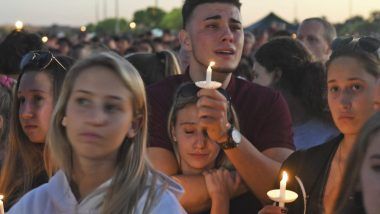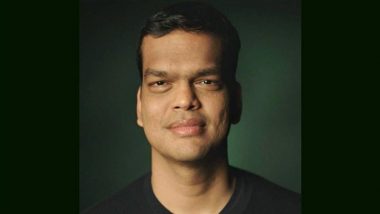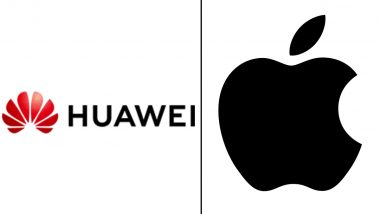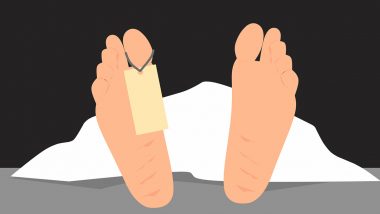Pompano Beach, February 17: US President Donald Trump visited a Florida hospital to offer comfort to those wounded in a mass school shooting, after the FBI admitted it mishandled a tip about the troubled teen behind the massacre that left 17 dead.
The arrival of Trump and his wife Melania came at the end of a difficult day for the families of those killed in Wednesday's rampage at a high school in Parkland, Florida, who learned that the carnage could perhaps have been averted. The FBI, the top US law enforcement agency, admitted it had received a chilling warning in January from a tipster who said the 19-year-old gunman, Nikolas Cruz, could be planning a mass shooting, but that agents failed to follow up.
At Broward Health North Hospital, where Trump met with survivors of the shooting, the president thanked the doctors, nurses and first responders for their "incredible" work, and described the carnage as "very sad." He and his wife were also expected to visit the Broward County sheriffs office "to meet with the law enforcement officials whose bravery helped save lives," a White House official said.
The president's visit to Parkland -- an area about 80 kilometers north of Miami -- came amid growing anger among parents and students in the south Florida city over Americas seeming unwillingness to toughen gun control laws.
"My princess wasnt safe in that school," said Andrew Pollack, speaking at the funeral of his 18-year-old daughter Meadow. "Please pray that this horrific tragedy never happens to another family." Lori Alhadeff, whose 14-year-old daughter Alyssa was killed at Marjory Stoneman Douglas High School, made an emotional appeal to Trump on camera with tears rolling down her face.
"We need action! Action! Action!" Alhadeff urged in an interview with CNN, addressing Trump as the father of an 11-year-old son of his own. "Lets protect Barron, and lets also protect all these other kids here in Parkland, in Florida, and everyone everywhere else," she said. The FBI made a stunning admission earlier in the day, saying a "person close to Nikolas Cruz" made a call to the agency's public tipline on January 5 to "report concerns about him."
"The caller provided information about Cruz's gun ownership, desire to kill people, erratic behavior, and disturbing social media posts, as well as the potential of him conducting a school shooting," the FBI said in a statement.
The information from the caller "should have been assessed as a potential threat to life" and forwarded to the agency's Miami field office, it said. Instead, "no further investigation was conducted."
"We have spoken with victims and families, and deeply regret the additional pain this causes all those affected by this horrific tragedy," said Federal Bureau of Investigation director Christopher Wray, who took up his post in August. Wray said he was "committed to getting to the bottom of what happened," and Attorney General Jeff Sessions ordered an immediate review to ensure "effective response to indications of potential violence." But Florida Governor Rick Scott nevertheless called for the FBI chief to step down, saying the failure to act was "unacceptable."
"Seventeen innocent people are dead and acknowledging a mistake isnt going to cut it," Scott said. The January warning to the FBI was not the first it had received about Cruz, who used an AR-15-style semi-automatic rifle that he legally purchased a year ago to spray classrooms with bullets.
In September, the FBI was alerted to a message posted on YouTube, in which a user named Nikolas Cruz vowed: "Im going to be a professional school shooter." The FBI said it had looked into it at the time but was unable to identify the person who made the post.
Trump's visit to the Parkland area -- not far from his Mar-a-Lago resort, where he was spending the long President's Day weekend -- was not announced in advance, perhaps because he risked being greeted with angry demands for action on laws that allowed Cruz to amass an arsenal. "Its illogical that the law says a minor cant have a drink, but can buy a gun," said 47-year-old Mavy Rubiano, whose child survived the shooting.
In Washington, the political response so far makes it clear that the powerful pro-gun National Rifle Association -- which spent USD 30 million to support Trumps election in 2016 -- remains formidable. On Thursday, Trumps nationally televised address made no mention of guns, or of previous mass shootings.
The president focused instead on offering sympathy to the families of the victims and the need to provide better mental health care. Republican House Speaker Paul Ryan said it was not a time for arguing over gun control, while Republican Florida Senator Marco Rubio said new gun laws alone would not stop shootings.
As with previous mass shootings, the focus of gun control advocates was the easy availability of the AR-15, a civilian version of the US military's M16. Millions have been sold around the United States, and AR-15-style rifles were used in the mass shootings in Las Vegas, Sutherland Springs, Texas and Newtown, Connecticut.





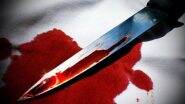





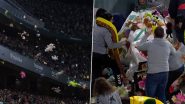

 Quickly
Quickly









